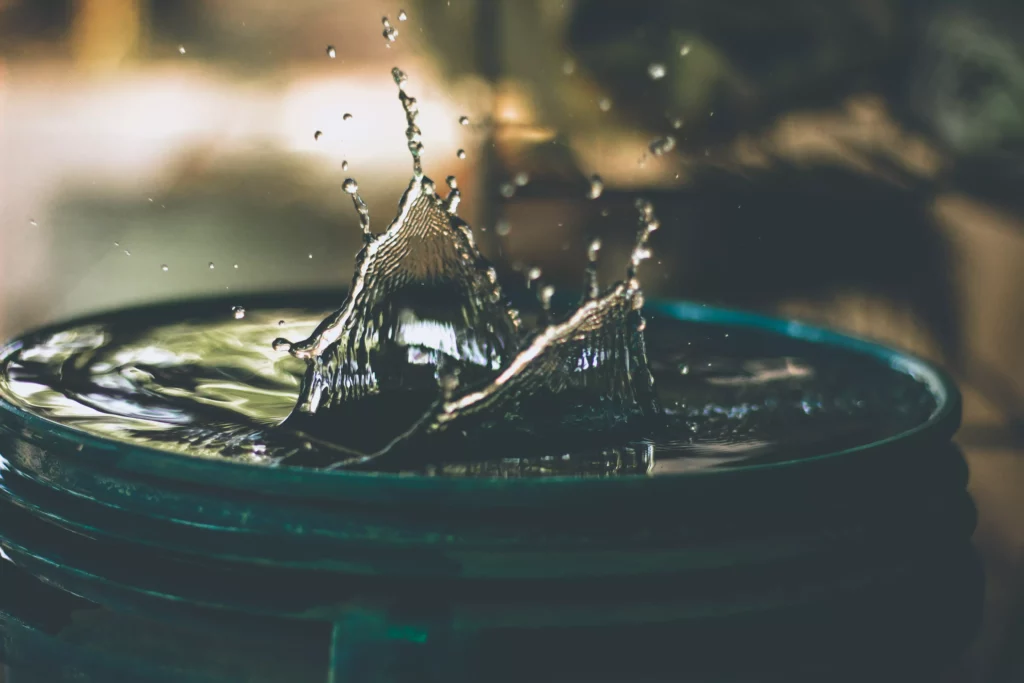How to Make a Successful Water Leak Insurance Claim: A Step-by-Step Guide
This comprehensive guide will teach you everything you need to know about making a successful water leak insurance claim.

Water leaks are one of the most common types of home damage, and they can be costly to repair. If you have water leak insurance, you can file a claim to help cover the cost of repairs and replacements. However, it’s important to know how to file a successful claim in order to receive the full amount of coverage you’re entitled to.
This comprehensive guide will provide you with step-by-step instructions on how to make a successful water leak insurance claim. You’ll learn everything from how to take immediate action to stop the leak to how to cooperate with your insurance adjuster.
Water leaks, while common, can lead to significant damages in your home. The aftermath can be overwhelming, especially when considering the financial implications of repairs. Fortunately, if you have water leak insurance, you can file a claim to mitigate these costs. But how do you ensure that your claim is successful? This guide will walk you through the process of making a successful water leak insurance claim, ensuring you maximize your entitled coverage.
1. Immediate Response: Addressing the Water Leak
The moment you notice a water leak, swift action is crucial. Not only does this minimize potential damage, but it also strengthens your insurance claim.
- Identify the Source: Whether it’s a burst pipe, a malfunctioning appliance, or a leaky faucet, pinpointing the source is essential.
- Shut Off the Water Supply: Locate the main water valve in your home, usually found in basements or utility areas, and turn it off. Here’s a guide on how to locate and turn off your main water valve.
- DIY Fixes: For minor leaks, try tightening connections or sealing small gaps. However, for significant leaks, it’s best to call in professionals.
- Call a Plumber: If you’re unable to manage the leak, get a plumber on the scene immediately. Find a trusted plumber near you.
2. Document Everything: The Key to how to make a successful water leak insurance claim
A well-documented claim is more likely to be successful. Capture every detail:
- Photograph the Damage: Take clear photos and videos showcasing the leak source, affected areas, and any damaged belongings.
- Time and Date: Ensure each photo or video is timestamped. This provides a clear chronology of events.
3. Navigating the Insurance Landscape: Making Your Claim
Having water leak insurance is a boon, but understanding how to navigate the claim process is crucial.
- Contact Your Insurance Provider: Reach out to your insurance company, preferably through their 24/7 hotline, to initiate the claim process.
- Provide Essential Information: Be ready with your policy number, a detailed description of the damage, the leak’s timing, and its source. Understanding your insurance policy can be beneficial during this step.
4. Working with the Insurance Adjuster: Collaboration is Key
Your insurance company will assign an adjuster to assess the damage. This is a pivotal step in determining your claim’s success.
- Be Cooperative: Provide the adjuster with all necessary information, access to the damaged areas, and any evidence you’ve gathered.
- Keep Track of Expenses: If you’ve undertaken any repairs or replacements, maintain all receipts. Your adjuster might require them for reimbursement.
5. Finalizing Your Claim: Securing Your Entitlement
After the adjuster’s assessment, they’ll file a report, and your insurance company will determine your coverage amount.
- Review the Offer: Ensure the coverage offered aligns with the damage incurred.
- Negotiation: If the proposed amount seems insufficient, don’t hesitate to negotiate. Sometimes, hiring an attorney can aid in this process.
How to Make a Successful Water Leak Insurance Claim: Protecting and Preparing
While the immediate aftermath of a water leak can be daunting, understanding the broader landscape of water leak insurance and how to protect your home in the future is equally crucial. This section will delve into preventive measures, nuances of different insurance policies, and tips on selecting the best insurance for water-related damages.
6. Prevention: The Best Strategy Against Water Leaks
Being proactive can save you from the distress of water leaks and the subsequent insurance claims.
- Regular Home Inspections: Schedule periodic checks of your plumbing system, appliances, and roofing. Catching potential issues early can prevent significant leaks.
- Install Water Sensors: Modern water sensors can detect leaks and alert you instantly, allowing for immediate action.
- Educate the Household: Ensure every member knows the location of the main water valve and how to turn it off.
7. Understanding Insurance Policies: Beyond Basic Coverage
Not all insurance policies are created equal. It’s essential to understand what your policy covers.
- Comprehensive vs. Basic: While basic policies might cover standard damages, comprehensive policies often include water leak damages, especially from unforeseen events.
- Specialized Water Damage Policies: Some insurance providers offer policies specifically tailored for water damages. Research and consider if such a policy is beneficial for your home.
- Know Your Deductibles: Understand the deductible structure of your policy. Sometimes, higher deductibles can lead to lower premiums but might mean higher out-of-pocket expenses during a claim.
8. Choosing the Right Insurance: Tailored for Your Needs
When it comes to insurance, one size doesn’t fit all. Your home’s location, age, and other factors can influence the kind of policy you need.
- Research and Compare: Use platforms like Insurancereviews911.com to compare different policies and their offerings.
- Seek Expert Advice: Consulting with an insurance agent can provide insights tailored to your specific needs.
- Read Reviews: Before settling on an insurance provider, read reviews, especially those related to claim settlements. Platforms like Consumer Reports can be invaluable.
9. The Aftermath: Post-Claim Reflection
Once your claim is settled, it’s a good time to reflect and prepare for the future.
- Review Your Policy: Consider if your current policy is adequate or if you need additional coverage.
- Build an Emergency Fund: Having a fund for emergencies can be a financial cushion, especially if you have high deductibles.
- Stay Updated: The world of insurance is ever-evolving. Stay updated with the latest offerings, discounts, and coverage options.
Tips for Making a Successful Water Leak Insurance Claim

Here are some tips for making a successful water leak insurance claim:
- Be prepared. Before you file a claim, make sure you have all of the necessary information, such as your policy number and the date and time of the leak.
- Be cooperative. Cooperate with your insurance adjuster and provide them with any information they need.
- Be organized. Keep track of all expenses related to the water leak, such as the cost of repairs, replacements, and temporary housing.
- Be patient. It may take some time for your insurance company to process your claim.
What to Do After a Water Leak
Once you have discovered a water leak in your home, it is important to take immediate action to stop the flow of water and minimize the damage. Here are some steps you should follow:
- Identify the source of the leak. This may be a broken pipe, a leaky faucet, or a damaged appliance. Once you have identified the source of the leak, you can take steps to stop the flow of water.
- If the leak is coming from a pipe, try to tighten the connection. If this does not stop the leak, you may need to replace the pipe.
- If the leak is coming from a faucet or appliance, try to tighten the connection. If this does not stop the leak, you may need to replace the faucet or appliance.
- If you cannot stop the leak yourself, call a plumber immediately.
Once the leak has been stopped, it is important to document the damage. This will help you to file a successful insurance claim and receive the full amount of coverage you are entitled to. To document the damage, take photos and videos of the following:
- The source of the leak
- The extent of the damage
- Any damaged belongings
Be sure to label the photos and videos with the date and time.
Filing a Water Leak Insurance Claim
Once you have documented the damage, you can file a water leak insurance claim with your insurance company. Most insurance companies have a 24/7 claims hotline that you can call.
When you file a claim, be prepared to provide the following information:
- Your policy number
- A description of the damage
- The date and time of the leak
- The source of the leak (if known)
Your insurance company will assign an adjuster to your case. The adjuster will investigate the claim and assess the damage.
The adjuster may also ask you to provide receipts for any repairs or replacements that you have made. Be sure to keep track of all expenses related to the water leak.
FAQs
Q: What should I do if I have a water leak?
A: If you have a water leak, you should take the following steps:
- Turn off the main water supply to your home.
- If possible, identify the source of the leak and try to stop the flow of water.
- Contact your insurance company to file a claim.
- Hire a water damage restoration company to clean up the damage.
Q: How do I know if my water leak is covered by insurance?
A: To determine if your water leak is covered by insurance, you should review your homeowners insurance policy. Most homeowners insurance policies cover water damage caused by:
- Leaks from pipes, appliances, and other plumbing fixtures
- Sewer backups
- Rain infiltration
However, there may be exclusions for certain types of damage, such as mold or mildew. It is important to read your policy carefully to understand what is and is not covered.
Q: How much does it cost to file a water leak insurance claim?
A: Filing a water leak insurance claim does not cost anything. Your insurance company will pay for the cost of investigating and settling your claim.
Q: How long does it take to process a water leak insurance claim?
A: The amount of time it takes to process a water leak insurance claim varies depending on the complexity of the claim and the workload of your insurance company. However, most claims are processed within a few weeks or months.
Q: What should I do if my water leak insurance claim is denied?
A: If your water leak insurance claim is denied, you should contact your insurance company to ask why your claim was denied. You may be able to appeal the denial. If you are unable to resolve the issue with your insurance company, you may want to consider hiring a lawyer.
Conclusion: how to make a successful water leak insurance claim
Water leaks, while distressing, offer an opportunity to understand, prepare, and protect your home better. Armed with the knowledge of how to make a successful water leak insurance claim and how to prevent future incidents, you can ensure peace of mind and financial security. Remember, the right insurance policy, combined with preventive measures, is your best defense against the unforeseen challenges posed by water leaks.
Water leak insurance can be a valuable asset if you experience a water leak in your home. By following the steps outlined in this article, you can increase your chances of filing a successful claim and recovering your losses.
Here are some additional tips for making a successful water leak insurance claim:
- Take photos and videos of the damage as soon as possible.
- Contact a water damage restoration company to clean up the damage.
- Keep all receipts for repairs and other expenses.
- Be cooperative with your insurance adjuster and answer all of their questions honestly.
By following these tips, you can increase your chances of getting the compensation you deserve for your water leak damage.



